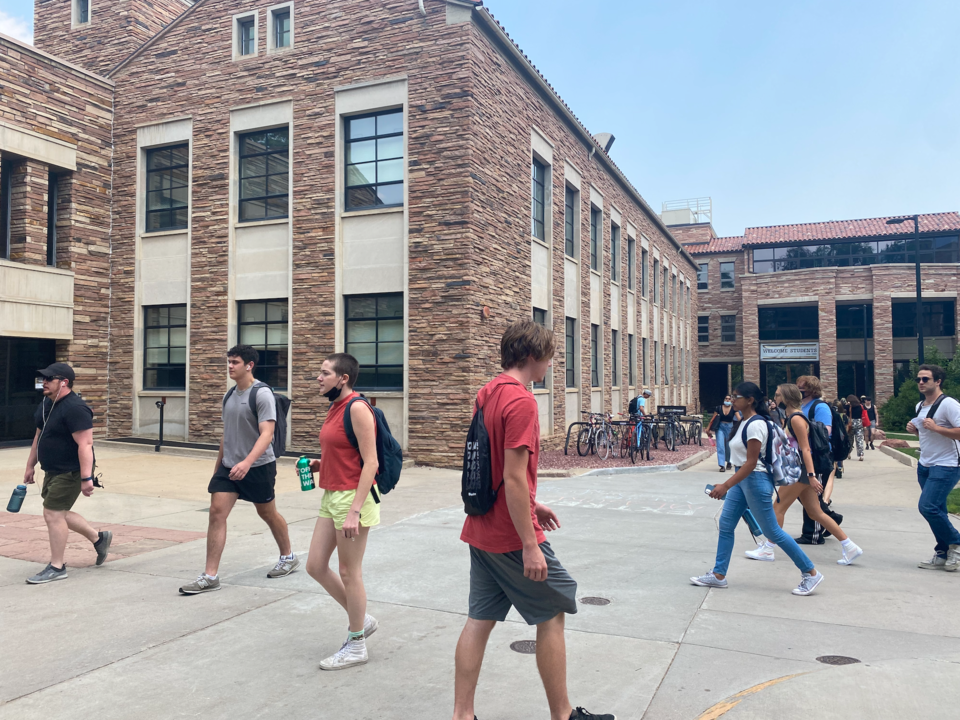The University of Colorado-Boulder’ Student Government, or CUSG, declared it was going on an indefinite strike in October. Proceedings resumed before the end of the semester but without warning or transparency about the allegations cited for the reasons for the strike.
CUSG declared that it would be going on strike indefinitely in October because of incidents of racism that its members had endured within the student government and at the university.
The strike announcement came as a shock to the CU community who rely on CUSG to be “responsible for allocating $25 million in student fees to improve the lives of all CU students,” as the organization’s webpage states. While on strike, the legislative council planned to meet as a committee but to cease all procedures that allow the Executive and Appellate Courts to operate – both branches of CUSG that administer millions of dollars in funding for student programs, according to the CU Independent, a student-led newspaper at CU Boulder.
Although the legislative council’s strike came to a close before the end of the fall semester, members of CU’s student government, or CUSG – including those who made discrimination claims and Megen Princehouse, CUSG’s acting office manager – have refused to provide reporters with more information about the strike since it began.
When asked recently about details of the strike, CU Student Affairs Student Body President Kavya Kannan was one of two CUSG members to respond. She said, “because the strike occurred over four months ago, took an incredibly big toll on the mental health of myself and others involved, and because a lot the relevant stakeholders have since left CUSG, myself, the other two student body presidents, and other members of the Executive Branch do not feel comfortable answering any questions about the strike or anything pertaining to the situation.”
CUSG failing to respond substantially – or even at all – to inquiries around the strike isn’t a good look for one of the largest student government institutions in the country, according to W.H. Oxendine, the executive director of the American Student Government Association. “Should they (respond to inquiries)? Yes,” said Oxendine, whose organization exists to help student governments improve. “Are they required to? No. Is it good optics for them not to? No, it’s not. It implies secrecy, it applies malfeasance … that’s the implication of not being willing to speak.”
CU Faculty Member Eldred Foster came onboard as CUSG’s program advisor after the strike on Jan. 4, and is not familiar with a lot of the details surrounding the strike, he said. However, “there’s a lot of recovery (this semester) from what happened,” Foster said. “Now, there’s a lot more communication between the branches so things are going smoother (within CUSG).”
Back in October, the legislative council said their strike announcement was a call to action for other CUSG members and the CU Boulder administration to address the issues of systematic racism within the university’s administrative process, said an article by The Bold, another student-led publication.
The committee, who released a public statement about the strike, also objected to a newly revised version of the “Chancellor’s Agreement” – an agreement which CUSG’s top executives and Chancellor Phillip P. Stefano had signed to include a new amendment to grant university administrators the right to remove any CUSG member from office.
In the statement, the council complained the agreement was revised without transparency to the rest of CUSG. Members of the legislative council also told The Bold they believed that the amendment to the agreement was made in retaliation of the members who had publicly spoken out about the racist episodes they’d encountered both within CUSG and as students of CU Boulder.
According to the CU Independent, members of CUSG had “objected to the treatment of minority groups, particularly BIPOC women, by administrative and student leadership,” before announcing the strike.
The claims came from various members of CUSG – all of whom were women of color – who said they had voiced their complaints about the “bullying, harassment and microaggressions they’ve faced during their time within the student government,” the CU Independent stated. In response, CUSG’s Executive Board reported they’d never heard about complaints of this sort.
The strike caused two of CUSG’s Legislative Council members – Emilia Johnson and Ben Wohl, both of whom were representatives at large – to resign from their positions before their terms were up, according to Suvu Singh, the committee’s representative council speaker.
Today, although CUSG is back in the swing of things according to Foster, details surrounding the legislative council’s strike are still undisclosed to those whom were affected, whether unknowingly or not.
“(CUSG’s) number one job is to be an advocate for CU’s students,” Oxendine said. “In doing so, I think they should not be reticent about speaking to the press.”
CORRECTION: This article has been altered to reflect the correct spelling of Emilia Johnson's name.



